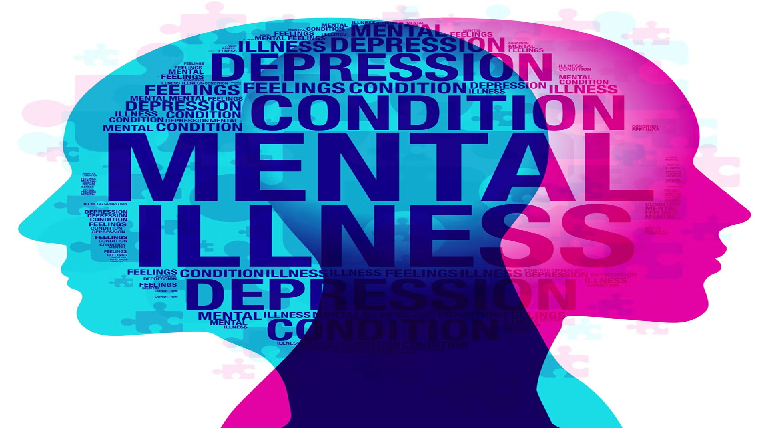The Importance of Mental Health: Tips for Self-Care and Stress Management

9 months ago
The Importance of Mental Health: Tips for Self-Care and Stress Management
In today’s fast-paced and demanding world, mental health has
become an essential part of overall well-being. Yet, it’s often overlooked in
favor of physical health or career goals. The truth is, mental health affects
how we think, feel, and act in our daily lives. It plays a vital role in our
ability to cope with stress, build relationships, and make decisions.
This blog post will explore why mental health is important,
the impact of neglecting it, and practical self-care and stress management tips
to nurture your mind.
Why Mental Health Matters
Mental health influences every aspect of our lives. Here’s
why prioritizing it is crucial:
- Emotional
Resilience: Good mental health helps you navigate life’s challenges
with a positive mindset.
- Physical
Health: Chronic stress and mental health issues can lead to physical ailments
like high blood pressure, weakened immunity, and sleep disorders.
- Relationships:
Mental well-being allows you to build and maintain strong, meaningful
connections.
- Productivity:
A healthy mind improves focus, creativity, and efficiency at work or
school.
- Overall
Quality of Life: When your mental health is in check, you can enjoy
life to the fullest and achieve your personal goals.
The Consequences of Neglecting Mental Health
Ignoring mental health can have far-reaching effects,
including:
- Increased
risk of anxiety, depression, and burnout.
- Strained
personal and professional relationships.
- Poor
decision-making and difficulty concentrating.
- Physical
symptoms like headaches, fatigue, and gastrointestinal issues.
Taking proactive steps to care for your mental health is not
only preventive but also empowering.
Tips for Self-Care and Stress Management
1. Prioritize Restful Sleep
- Why
It Matters: Sleep is essential for mental clarity, emotional
regulation, and physical health.
- How
to Do It:
- Establish
a consistent bedtime routine.
- Avoid
screens an hour before sleep.
- Create
a calming sleep environment by keeping your bedroom dark, quiet, and
cool.
2. Practice Mindfulness and Meditation
- Why
It Matters: Mindfulness helps you stay present and reduces feelings of
overwhelm.
- How
to Do It:
- Set
aside 5–10 minutes daily for meditation.
- Focus
on your breathing or use guided meditation apps to get started.
- Engage
in mindfulness during daily activities, such as eating or walking.
3. Stay Physically Active
- Why
It Matters: Exercise releases endorphins, which are natural mood
boosters.
- How
to Do It:
- Aim
for at least 30 minutes of moderate activity, like walking, cycling, or
yoga, most days of the week.
- Choose
activities you enjoy to make it sustainable.
4. Build a Support System
- Why
It Matters: Social connections provide emotional support and reduce
feelings of isolation.
- How
to Do It:
- Spend
quality time with friends and family.
- Join
a support group or community that aligns with your interests.
- Don’t
hesitate to ask for help when you need it.
5. Practice Gratitude
- Why
It Matters: Focusing on what you’re thankful for can shift your
mindset and improve mental well-being.
- How
to Do It:
- Write
down three things you’re grateful for each day.
- Reflect
on positive moments or achievements, no matter how small.
6. Manage Stress Proactively
- Why
It Matters: Unchecked stress can lead to burnout and other mental
health issues.
- How
to Do It:
- Break
tasks into manageable steps to avoid feeling overwhelmed.
- Set
realistic goals and prioritize your to-do list.
- Learn
to say no when your plate is full.
7. Limit Screen Time
- Why
It Matters: Excessive use of social media or news can increase anxiety
and stress.
- How
to Do It:
- Set
boundaries for screen time, especially before bed.
- Use
apps to track and limit your time on social media.
- Take
regular breaks from digital devices.
8. Engage in Activities You Love
- Why
It Matters: Hobbies and interests can bring joy and a sense of
purpose.
- How
to Do It:
- Dedicate
time each week to activities you enjoy, such as painting, gardening, or
reading.
- Try
something new to challenge yourself and spark creativity.
9. Seek Professional Help When Needed
- Why
It Matters: Sometimes, professional guidance is necessary to address
deeper issues.
- How
to Do It:
- Reach
out to a therapist or counselor if you’re struggling to cope.
- Consider
therapy as a proactive step, not just a last resort.
- Explore
options like online therapy if in-person sessions aren’t accessible.
Breaking the Stigma Around Mental Health
One of the biggest barriers to mental health care is the
stigma associated with it. Remember, seeking help is a sign of strength, not
weakness. By openly discussing mental health and supporting those around us, we
can create a more compassionate and understanding society.
Conclusion
Mental health is just as important as physical health, and
caring for your mind should be a priority in your daily life. By incorporating
self-care and stress management techniques, you can improve your emotional
resilience, reduce stress, and lead a more fulfilling life.
Start small, be consistent, and remember—you deserve to feel your best, both mentally and physically. Prioritize your mental health today for a brighter, healthier tomorrow.
©everlastcyber™





0 Comment